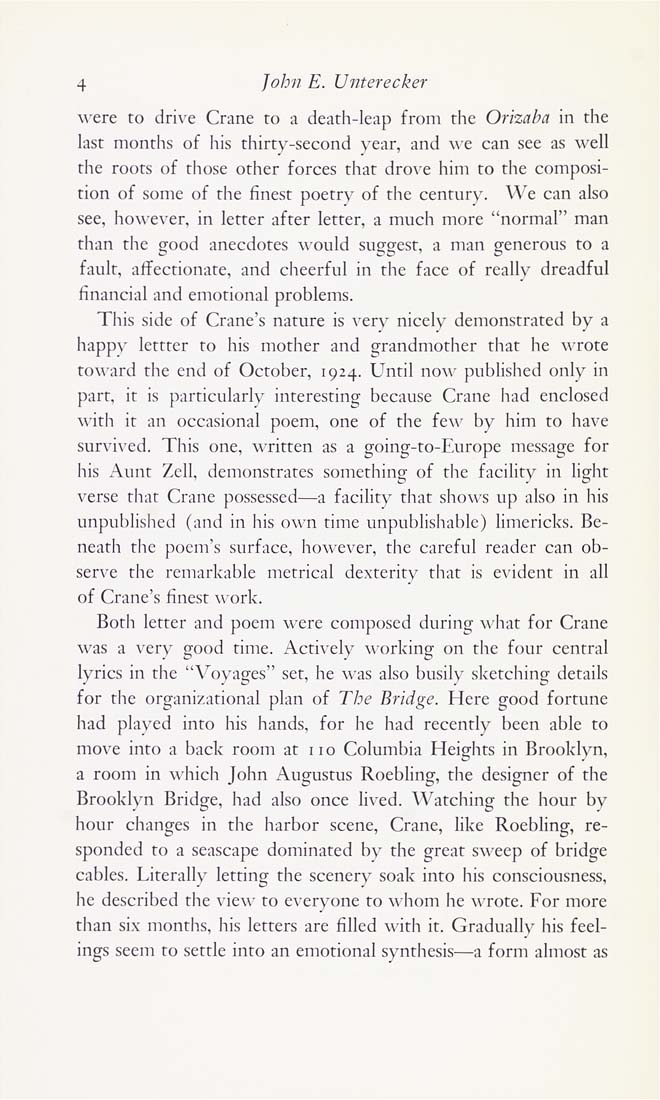Columbia Library columns (v.15(1965Nov-1966May))
(New York : Friends of the Columbia Libraries. )
|
||
|
|
|
|
| v.15,no.3(1966:May): Page 4 |

4 John E. Unterecker were to drive Crane to a death-leap from the Orizaba in the last months of his thirty-second year, and we can see as well the roots of those other forces that drove him to the composi¬ tion of some of the finest poetry of the century. We can also see, however, in letter after letter, a much more "normal" man than the good anecdotes \\ould suggest, a man generous to a fault, affectionate, and cheerful in the face of really dreadful financial and emotional problems. This side of Crane's nature is \ery nicely demonstrated by a happ\- lettter to his mother and grandmother that he wrote toward the end of October, 1924. Until now published only in part, it is particularly interesting because Crane had enclosed with it an occasional poem, one of the few by him to have survi\'ed. This one, written as a going-to-Europe message for his Aunt Zcll, demonstrates something of the facility in light verse that Crane possessed—a facility that show s up also in his unpublished (and in his own time unpublishable) limericks. Be¬ neath the poem's surface, however, the careful reader can ob¬ serve the remarkable metrical dexterity that is e\'ident in all of Crane's finest work. Both letter and poem were composed during \\ hat for Crane was a very good time. Actively working on tlie four central lyrics in the "Voyages" set, he was also busily sketching details for the organizational plan of The Bridge. Here good fortune had played into his hands, for he had recently been able to mo\e into a back room at 110 Columbia Heights in Brooklyn, a room in which John Augustus Roebling, the designer of the Brooklyn Bridge, had also once lived. Watching the hour by hour clianges in the harbor scene. Crane, like Roebling, re¬ sponded to a seascape dominated by the great sweep of bridge cables. Literalh- letting the scener\- soak into his consciousness, he described the view to everyone to whom he wrote. For more than si.x montlis, his letters are filled with it. Gradually his feel¬ ings seem to settle into an emotional syntliesis—a form almost as |
| v.15,no.3(1966:May): Page 4 |







